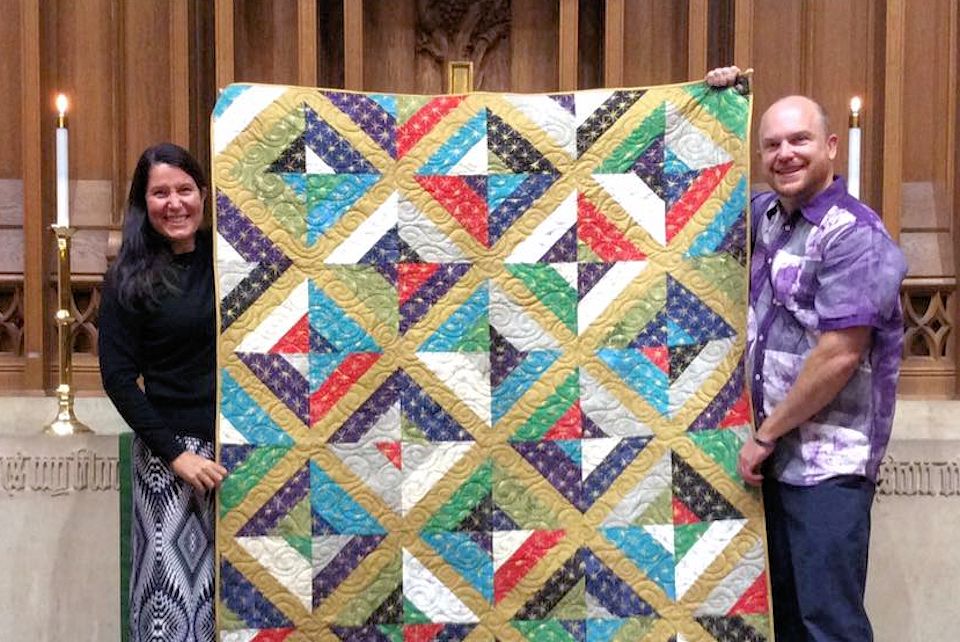Traditions can’t be observed. Ministry is different and difficult. People feel isolated and afraid. COVID-19 has made leadership more stressful than ever. Share special care this Pastor Appreciation Month.
PHILIP BROOKS
Resource UMC
These are stressful times for United Methodist churches. Congregations are still processing the outcome of the called General Conference in 2019. Churches in several parts of the United States and other parts of the world are recovering from natural disasters. [And since the writing of this feature, COVID-19 has thoroughly disrupted worship, ministry, mission, and all aspects of life in local churches.] As congregations and individual members respond in different ways to demands on time and energy as well as uncertainty about their church’s future, most continue to look to their pastors for support.
However, as pastors willingly address the spiritual and emotional needs of their congregations and parishioners, it is easy to forget that many of them are confronting the same concerns and are just as much in need of support.
Congregants can become so accustomed to having the pastor care for them; they may not think about his or her needs. However, spiritual support is a two-way street. Clergy and laity alike are members of the same Body of Christ. When one part of the body is hurting or troubled, it affects the whole and impairs the mission. If congregations want to be the kind of church St. Paul envisioned (1 Corinthians 12), they need to love and support their pastor the same way they want to be supported.
There are many ways congregations can offer their pastor support during these stressful times.
The local church staff-parish relations committee can take the first step by asking, “How is it with your soul? How can we help you?” Let pastors share what they need. The committee should work with the pastor to develop plans that will lessen pastoral burdens, allow them to work through their anxieties, and make sure they aren’t neglecting other vital parts of their life (family, physical and mental health, finances, etc.).
Here are more suggestions of ways congregations can support their pastors during stressful times:
- Remember that the day-to-day responsibilities of the pastor don’t stop for special events or natural disasters. Appreciate that the pastor is still fulfilling regular commitments to the church. It may be helpful to delegate some duties. Congregants might assist with contacting the homebound or leading classes. Staff-parish can take the lead in identifying functions and encouraging delegation.
- The staff-parish committee should actively encourage the pastor to take some downtime or use some vacation or other personal time, especially if they feel overwhelmed.
- If a pastor is dealing with a lot of spiritual and emotional anxiety, encourage them to see a mentor outside the church to talk freely. Pastors might also be encouraged to pursue retreats, classes, guided meditations, or other spiritual disciplines. (Make certain their leadership responsibilities are minimal if any.)
- Support the pastor’s family. Spouses and children often share the stress of the pastor. Let the entire family know they have the congregation’s support, and make sure the pastor takes adequate time for family. The General Commission on the Status and Role of Women has excellent resources for supporting clergy spouses and children.
- Pray for your pastor. Lift the pastor up by name during prayers in classes, at fellowship events and committee meetings, and other times. If the pastor is present, offer to pray as you lay hands on or extend hands toward them. Just letting pastors know they are being prayed for is a source of comfort.
- Show gratitude. Being acknowledged and knowing they are appreciated means a lot. Individual members might show their gratitude by sending a personal card or offering to take the pastor to lunch.
- Don’t expect them to have all the answers. Many United Methodists are anxious about the future of their congregation and the larger denomination. It’s okay to share questions or concerns with the pastor, but understand that they, too, are processing what is happening and waiting to learn more.
- Acknowledge and respect the pastor’s individuality. You and your pastor may not have the same reaction to recent developments in the church. When discussing your concerns, be respectful and treat it as a conversation between friends who may disagree sometimes, but still love one another.
- Help your pastor stay physically healthy. If you notice signs of unusual stress or fatigue, talk to them privately or bring your concern to the staff-parish committee. Stress can make it harder to stay healthy.
- Continue to give. The majority of giving stays within the local church, supporting its mission and ministry, including providing the salaries of the pastor and staff. Like most people, pastors sometimes worry about their finances. By ensuring that pastors can pay the bills every month, congregants can eliminate one source of additional stress.
For more ideas on ways to support your pastor, check out 50 Ways to Support Your Pastor’s Health and Well-Being, a publication of Wespath, the United Methodist pension and health benefits agency.
Philip Brooks is a writer/content developer with the leader communications team at United Methodist Communications, Nashville, Tennessee.
Last Updated on October 31, 2023

